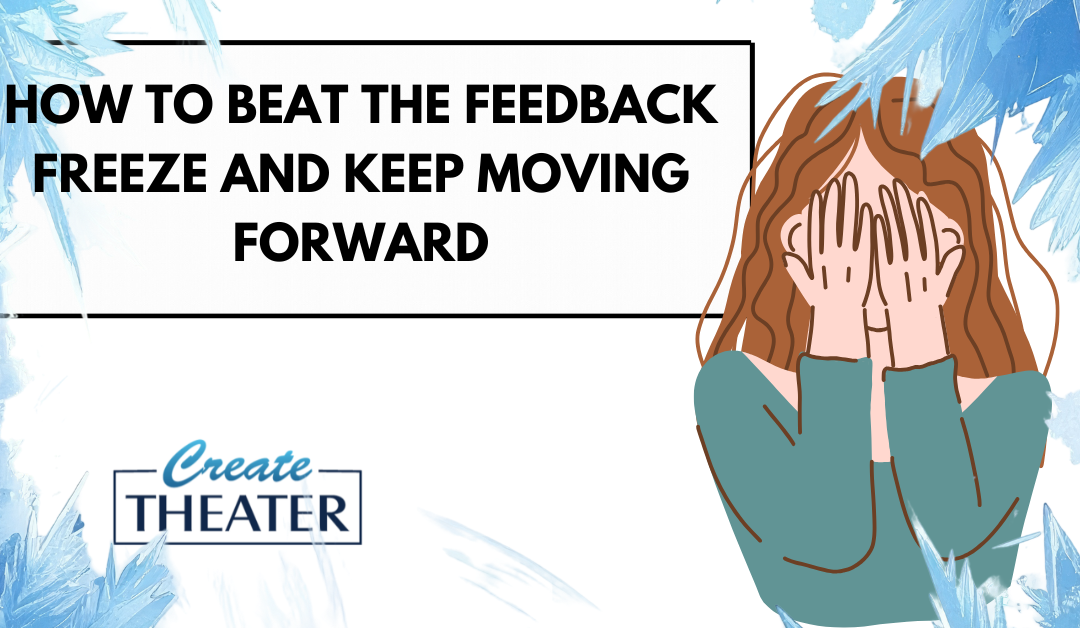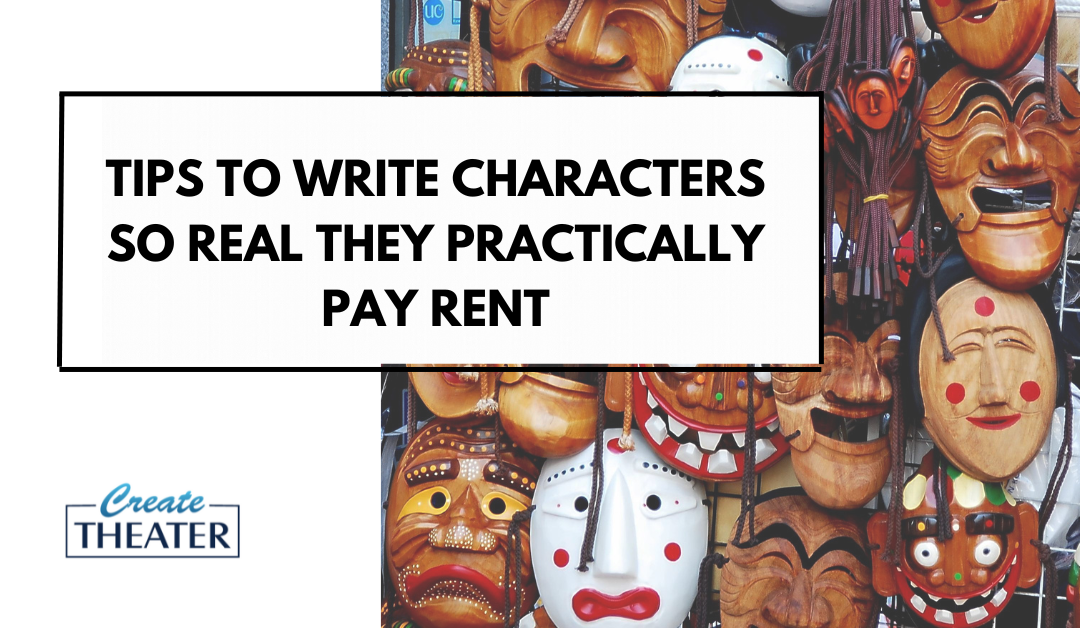
How to Beat the Feedback Freeze and Keep Moving Forward
What to Do With Notes When You’re Feeling Stuck
You’ve just had a table reading and got feedback on your new musical or play.
Oof. You sit through the conversation, scribble some notes. And suddenly, your brain goes silent.
Everything you’ve done feels wrong. You don’t know where to begin. Why didn’t they get it?
Welcome to the feedback freeze, that uncomfortable post-notes paralysis where you’re too overwhelmed to revise, but too self-aware to keep drafting blindly.
We’ve all been there.
The good news? This moment doesn’t mean you’re failing—it means you’re creating something. It means you’re growing as an artist. And if you let it, this moment can become the most transformative part of your process.
Take a deep breath (and maybe take a couple of days), and let’s look at this a bit differently.
Yes, it can be overwhelming. Here’s some tricks that my writers use to move through the freeze and keep creating.
Feel First. Don’t Fix. Not Yet.
Before you do anything practical with you feedback—feel your feelings. Let yourself be annoyed. Defensive. Confused. Crushed. Whatever. Allow your feelings to be.
Feedback can feel personal, even when it’s not. The important thing is to give yourself space to emotionally digest before deciding what to do.
Try these:
- Journaling your gut reactions
- Taking a walk or 24-hour pause
- Reminding yourself: Notes are about the work, not your worth
Processing first means you won’t overcorrect or reject ideas just because they hurt.
Sort the Useful from the Noise
Not all feedback is created equal. Some notes are gold. Others are well-meaning… but not necessarily correct for your work.
Ask yourself:
- Does this feedback align with what I’m trying to make? Does it feel right somehow to me? Is it something that I’ve suspected myself?
- Is it pointing out a real problem, even if the suggested fix isn’t right?
- Have I heard this more than once?
- Do I trust the feedback given from this particular individual?
Create three buckets:
- Definitely Use
- Maybe/Needs More Thought
- Not Helpful for This Draft
It’s important to let your own artistic sense and goals guide the filter before you change even a single word in your script.
Build a Feedback-to-Action Workflow
Once you’ve sorted everything out, translate your top notes into clear, bite-sized actions.
Instead of “make the second act tighter,” try:
- “Cut 5–7 minutes from Act 2”
- “Clarify character X’s decision at midpoint”
- “Reorder scenes 7 and 8 for better momentum”
Think like a director giving yourself cues. Make it actionable.
Use tools like:
- A revision spreadsheet
- Sticky notes by scene on the wall
- Index cards with individual notes per moment
The goal: to transform abstract feedback into a concrete to-do list instead of stewing in your thoughts.
Give Yourself Time—But Not Too Much
You don’t have to implement feedback right away. In fact, rushing can lead to muddy drafts.
But beware the other trap: overthinking yourself into a corner.
Instead, try:
- Setting a date to revisit the notes with fresh eyes
- Giving yourself a short feedback “cooldown” window—3 to 5 days max, then taking another look
- Schedule a “next step” writing session before you feel totally ready
You’ll get clarity faster when you’re back in motion and thinking clearly.
Set Mini-Goals Based on the Notes
You don’t have to fix everything at once.
Start with one mini-goal:
- “Improve the inciting incident’s clarity”
- “Revise character B’s final song lyric”
- “Draft a new scene that addresses note X”
Each small step rebuilds your momentum. And the more you do, the more your confidence returns.
Remember: Feedback is fuel. Not a final verdict.
You’re an artist. A writer. The builder of this unique and interesting world. Notes are there to support your vision—not replace it.
So feel your feelings. Take what helps. Break it into action. And keep writing the story only you can tell.
Want a community to help you process and act on feedback?
Think about joining our Writer’s Residence, the Experts Theater Company.





